From award-winning and shortlisted works of fiction, to scholarly and historical inquiry and analysis, to critically acclaimed non-fiction, women faculty from Arts & Science published exciting new books this past year. Here are just a few of the titles that will inform, educate and inspire you.
A few titles to inform, educate and inspire you
Tall trees and taller tales — poetry that fuses Greek history with colonialism
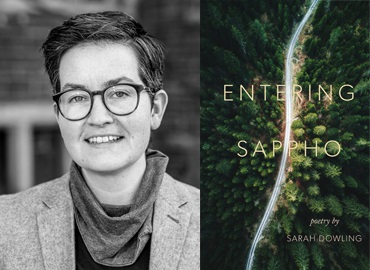 There’s a road sign in northern Washington State that reads “Entering Sappho,” a small logging village that emerged in 1895 and died by the end of the twentieth century. Taking a photo beside the sign is somewhat of a pilgrimage for those who identify as queer women, paying homage to the famous Greek poet from the island of Lesbos.
There’s a road sign in northern Washington State that reads “Entering Sappho,” a small logging village that emerged in 1895 and died by the end of the twentieth century. Taking a photo beside the sign is somewhat of a pilgrimage for those who identify as queer women, paying homage to the famous Greek poet from the island of Lesbos.
For Sarah Dowling, an assistant professor at the Centre for Comparative Literature, that sign and the stories behind the small forgotten town became the inspiration for her collection of poetry, also called Entering Sappho.
Diving into the town’s historical archives, newspaper clippings and little-known memoirs from its residents, Dowling brings Sappho the poet together with Sappho the town in order to think about history and the broader phenomenon of settler colonialism in a different way.
Thinking about Black experiences of education
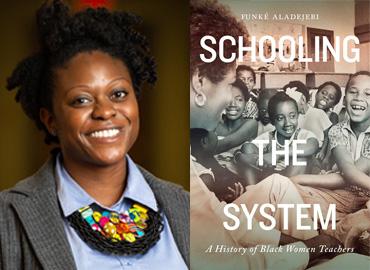 In post-World War II Canada, Black women’s experiences in the teaching profession served as sites of struggle and contestation in a myriad of ways. Their presence as racialized educators, though smaller in number, represented the various ways in which Black women disrupted mainstream notions of education in Ontario and challenged Canadian nationhood more broadly.
In post-World War II Canada, Black women’s experiences in the teaching profession served as sites of struggle and contestation in a myriad of ways. Their presence as racialized educators, though smaller in number, represented the various ways in which Black women disrupted mainstream notions of education in Ontario and challenged Canadian nationhood more broadly.
Schooling the System, by Funké Aladejebi, an assistant professor in the Department of History, explores the ways in which Black women teachers’ engagement with Ontario’s education system was comprised of a set of difficult, messy and complex processes; beginning with access to education, their ability to get into teachers’ college, the constant questioning of their professional status and the realities that shaped their choices inside Ontario schools.
Celebrating literature and performance in the 1820s
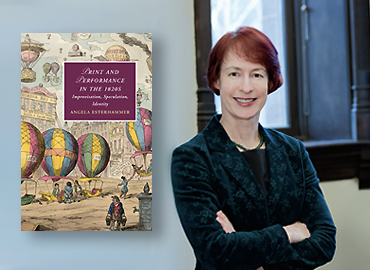 According to Angela Esterhammer, a professor with the Department of English and principal of Victoria College, the 1820s were brimming with energy and experimentation that was reflected in bold new directions for literature and the performing arts.
According to Angela Esterhammer, a professor with the Department of English and principal of Victoria College, the 1820s were brimming with energy and experimentation that was reflected in bold new directions for literature and the performing arts.
Esterhammer captures that spirit in Print and Performance in the 1820s: Improvisation, Speculation, Identity, exploring how bestselling literature, popular theatre and periodical journalism wowed middle-class audiences.
Amid this rapidly changing art scene, some writers and entertainers created exciting but flash-in-the-pan fads, while others created new forms of entertainment that had a lasting influence. Esterhammer connects these forms of popular culture with people's attitudes and anxieties, as well as its influences on larger cultural changes.
Celebrating a mother’s courageous tale of challenging autism’s roots
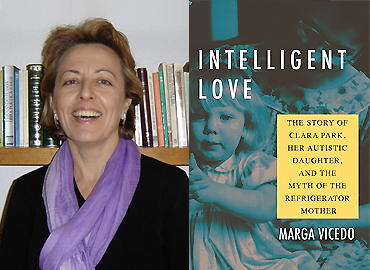 Did you know that in the 1960s, psychiatrists and psychologists believed autism was caused by unloving mothers? They believed their lack of affection pushed children into this condition.
Did you know that in the 1960s, psychiatrists and psychologists believed autism was caused by unloving mothers? They believed their lack of affection pushed children into this condition.
As a result, Massachusetts homemaker Clara Park was blamed for her three-year-old daughter Jessica’s disability. She was labelled a “refrigerator mother” — a cold parent starving Jessica of the natural affection needed to develop properly.
But Park dared to tell the psychiatric community they were wrong. Marga Vicedo, a professor in Institute for the History and Philosophy of Science & Technology, captures Park’s courageous story in her book, Intelligent Love: The Story of Clara Park, Her Autistic Daughter and the Myth of the Refrigerator Mother.
Chinese history captured in the story of a family
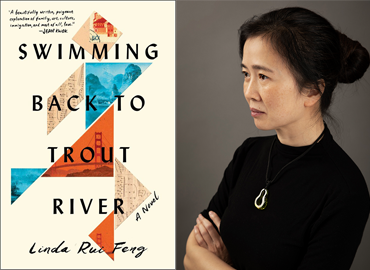 Linda Rui Feng shifts back and forth between academic and fiction writing. Born in Shanghai, she emigrated to the United States in her early teens and has long moved between academic and creative pursuits.
Linda Rui Feng shifts back and forth between academic and fiction writing. Born in Shanghai, she emigrated to the United States in her early teens and has long moved between academic and creative pursuits.
As an associate professor in the Department of East Asian Studies, she is an acclaimed cultural historian often buried in maps and other ancient documents, looking outwardly to uncover facts about life in medieval and early modern China.
As a writer and poet, she looks inward, searching for psychological and emotional truths through storytelling.
Feng’s first novel, Swimming Back to Trout River tells the story of a married couple, Momo and Cassia, and an aspiring musician, Dawn, as they each make their journey from China to the United States in the 1970s and 80s.
Disability, performance and early modern English theater
 In Shakespearean theatre of the 16th and 17th centuries, some theatre critics worried that actors — embodying differences of gender and ability — might be permanently transformed. The actors would become what they portrayed.
In Shakespearean theatre of the 16th and 17th centuries, some theatre critics worried that actors — embodying differences of gender and ability — might be permanently transformed. The actors would become what they portrayed.
This is just one of the interesting insights that Katherine Williams, an assistant professor in the Department of English, shares in Unfixable Forms: Disability, Performance, and the Early Modern English Theater.
Intertwining theatrical history with contemporary disability studies, Williams explores disability on the early modern stage and what disability in performance teaches us about early modern English culture — and how some of these beliefs and stigmas still exist today.
Raising a glass to celebrate Dostoevsky at 200
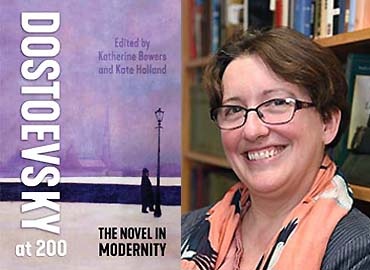 Kate Holland’s boring summer job in a fishing museum cafe gave her the chance to fall in love with the novels of Fyodor Dostoevsky.
Kate Holland’s boring summer job in a fishing museum cafe gave her the chance to fall in love with the novels of Fyodor Dostoevsky.
That love affair continues today, as Holland is an associate professor in the Department of Slavic Languages & Literatures, and president of the North American Dostoevsky Society.
2021 marked the 200th anniversary of his birth, and in a year filled with celebrations around the world, Holland released her book, Dostoevsky at 200: The Novel in Modernity that she co-edited with Katherine Bowers, an associate professor at the University of British Columbia.
The book’s ten essays, written by international academics, including Holland, examine how Dostoevsky’s writing explores the clashes between science, materialism and technology with traditional cultural, religious and family values.
-
Read more: Kate Holland celebrates Dostoevsky at 200
Disability perception in post-revolutionary Mexico
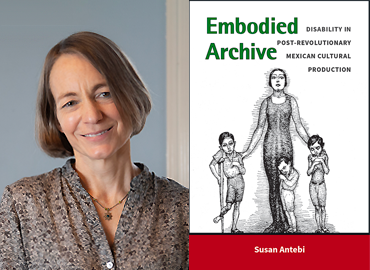 Shortly after the Mexican Revolution (1910-1920), the country’s leaders sought to create a healthy children’s population through campaigns and efforts designed to minimize disability.
Shortly after the Mexican Revolution (1910-1920), the country’s leaders sought to create a healthy children’s population through campaigns and efforts designed to minimize disability.
Mexico’s Ministry of Public Health and Ministry of Public Education believed physical and intellectual disability were caused by unhygienic living conditions or poor parenting. This approach complemented the country’s goal of eugenics — promoting desired characteristics to improve future generations.
Susan Antebi, an associate professor in the Department of Spanish & Portuguese, brings together a combination of Mexican literature, history, disability studies and personal reflections in her book, Embodied Archive: Disability in Post-Revolutionary Mexican Cultural Production. She explores this historical period to better understand the country’s perception and attitudes toward human differences.

